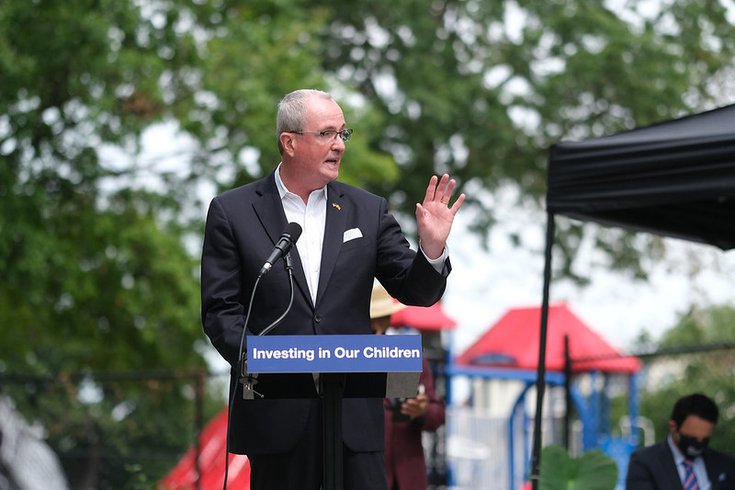
September 17, 2020
 Edwin J. Torres/New Jersey Office of the Governor
Edwin J. Torres/New Jersey Office of the Governor
New Jersey Gov. Phil Murphy said that these measures will help "ongoing efforts to get things right for our long-term care residents, staff, and families."
After the COVID-19 pandemic ravaged long-term care facilities across the state, New Jersey has taken a number of steps to improve the resiliency and preparedness of the industry for future outbreaks.
Minimum wage requirements for long-term care facility staff, direct care ratio mandates for nursing homes, and nursing home care rate studies have now been implemented.
The New Jersey Task Force on Long-Term Care Quality and Safety has been established to address the impact of the virus on such facilities. The task force will address issues such as staffing shortages, quality of care concerns, emergency preparedness, and the modernization of the long-term care industry.
Some initiatives that the task force will seek to explore include the expansion of home and community-based services and the enhanced use of telemedicine.
A temporary rate adjustment for certain nursing homes has been authorized, which appropriates more than $62 million to address the financial impact of the pandemic on the industry.
Approximately $130 million in new Medicaid funding over the remainder of the fiscal year will be delivered to nursing homes to help increase wages for frontline workers and to support the needs of long-term care facilities and their ability to comply with health and safety guidelines. That includes COVID-19-related infection control, PPE, cleaning, and staffing.
Through the development of a centralized long-term care emergency operations center, the state must now meet several requirements in order to prepare for and respond to future infectious disease outbreaks. It also ensures that nursing homes have sufficient plans in place if and when an outbreak occurs.
Gov. Phil Murphy signed the legislative package into law on Wednesday.
“The residents and staff of our long-term care facilities have borne an outsized burden of this pandemic,” Murphy said. “While we know this has not been a tragedy unique to New Jersey, we will learn from this crisis and emerge as a national model for solving immediate challenges and building future resilience.”
“These measures not only support our ongoing efforts to get things right for our long-term care residents, staff, and families, but also ensure we have strong measures in place to deal with bad actors in the industry who put profit before people.”
“This package of bills will improve the resiliency and quality of our long-term care facilities and strengthen their emergency preparedness,” Health Commissioner Judy Persichilli said. “Most importantly, they provide the recognition the Certified Nursing Assistants deserve through wage increases and career ladder opportunities.”
The measures came about after a review of the state’s long-term care facility industry by Manatt Health to address the systemic challenges that nursing homes face and provide reforms in the wake of COVID-19. The study was conducted earlier in the pandemic, and its findings were unveiled in June.
Nursing homes across New Jersey have been devastated by the ongoing public health crisis. Almost 700 facilities across the state have experienced COVID-19 outbreaks.
There have been over 38,000 coronavirus cases linked to nursing home residents and staff. That accounts for nearly 20% of New Jersey’s total number of infections.
Additionally, there have been over 7,000 deaths due to COVID-19 among long-term face facility residents and staff. That makes up exactly half of New Jersey’s death toll from the virus.
Follow Pat & PhillyVoice on Twitter: @Pat_Ralph | @thePhillyVoice
Like us on Facebook: PhillyVoice
Add Pat's RSS feed to your feed reader
Have a news tip? Let us know.